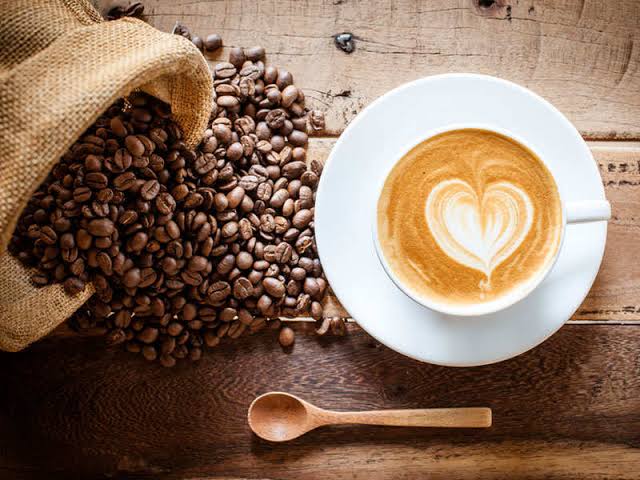Specialty Coffee

Growing, roasting, & brewing coffee is a beautiful art.
Specialty coffee is the highest grade of green bean coffee available. The process of developing specialty coffee involves the entire supply chain and features single-estate or single-origin coffees.
Growing, roasting, and brewing coffee is a beautiful art. It is a process that involves so much more than just the beverage. We will avoid the general definitions of specialty coffee as given by the Specialty Coffee Association (SCA), the Coffee Quality Institute (CQI), globally renowned commercial and specialty coffee trading houses and any other such institutions. Instead, we will share our own perspective on the matter and shed light on what our views are on the differences between a regular cup of coffee and a specialty one. In many ways, our perspective will perhaps more reemphasize rather than redefine many aspects of the understanding of specialty coffee by large institutions. So, let’s get started! The coffee farmer plays a major role in initiating this grand ritual at the farm level and he is later assisted by the roaster who with the aid of chemistry, sensory perception and perpetual experimentation does justice to the hard work of the producer. At the farm level, several dimensions of attention elevate the status of a particular lot of coffee to “specialty”. A great deal of attention goes into nurturing the soil and planting the right varietals of coffee at the right altitude and location to ensure a healthy lifecycle for each plant. Picking needs to be done in a sophisticated and selective manner to ensure cherries are picked at their ripest following which they are arduously sorted to separate the best from the rest. And then we move into the magical world of post-harvest processing where producers turn into scientists and experiment with all kinds of methods to influence fermentation and drying which greatly influences the end flavour. Once post-harvest processing is complete and the coffees are well rested, they are sent off to the mills where they cured before getting shipped off to roasters. A tremendous series of activities including cupping and profiling take place at this level which differentiates specialty coffee from its commercial equivalent. Roasters ensure that they develop roast profiles to bring out the most impactful flavours unlocking all the potential present in each lot of coffee. There are no strictly set standards to test the efficacy of specialty coffee. However, the SCA has a sophisticated scoring system for quality and they establish that according to this system, coffees that score above 80 on 100 points (typically graded by certified Q-Graders for Arabica and Robusta) can be deemed as specialty. There are several different classifications of specialty coffee. Some countries produce specialty coffee more than others. The origin of specialty coffees varies by region, but they tend to originate in the tropical “Bean Belt” region of the world.
Exceptional Qualities of Specialty Coffee Make it so Special
There are certain qualities that make a specialty coffee special. Several international organizations have set standards for this type of coffee, and they are based on the specific sourcing and processing of the specialty coffee beans. The types of specialty coffee include Arabica and Robusta, and they are grown at different altitudes. This diversity in taste makes specialty coffee more desirable to consumers because it is more unique than other types of coffee. Body, acidity and sweetness are typically present in high amounts in specialty coffee. Body creates the mouthfeel of a coffee while acidity defines how lively it feels on the palate and sweetness describes how flavourful the coffee is. A full-bodied coffee has a buttery or syrupy flavour and retains more flavour when diluted with milk or water. Specialty coffee beans typically have more density compared to non-specialty beans. Coffees with higher density are of much higher quality as they pack more flavour in them and also have a longer shelf life. This implies that coffees with higher density will degrade slower when exposed to environmental stress – particularly changing weather. Commercial coffees are often made from lower-quality cherries and maybe bitter because they’re not of the highest quality. In contrast, specialty coffee has deeper flavours which are imbibed from the cherry and often developed by special post-harvest processing techniques used by specialty coffee growers. In addition to the roasting, cleaning, and drying of the beans, specialty coffee makers also pay attention to the packaging and storage of the finished product. The coffee is usually packed in bags which have a one-way valve which allow the coffee to degas but block oxygen from entering the bag and reacting with the coffee.
The Art Of Brewing Speciality Coffee
The specialty coffee experience cannot be completed without the final piece of the puzzle which is brewing. There are many important parameters to consider including the coffee’s origin, roast profile and the brewing method being used. The roasting process is critical to the coffee’s aroma and overall quality. If the roasting is poorly done, the coffee can carry unpleasant tastes, weak body and burnt, ashy flavours. Specialty coffee has a higher price tag than regular coffee which makes it important to research and understand what exactly it is that you are buying. Choosing the right grind size, the right temperature of water, and following a fixed recipe recommended by the roaster is vital to brewing specialty coffee properly at home or commercially. While it sounds complex, most roasters very clearly lay out easy recipes for several brewing methods including Pour over, French Press, Moka Pot, Drip Filter and Aero-press on their websites. They may also recommend specific recipes for each type of coffee. Based on your brewing method, you can choose the most suitable recipe for your coffee and get the best results from your bag of coffee.

